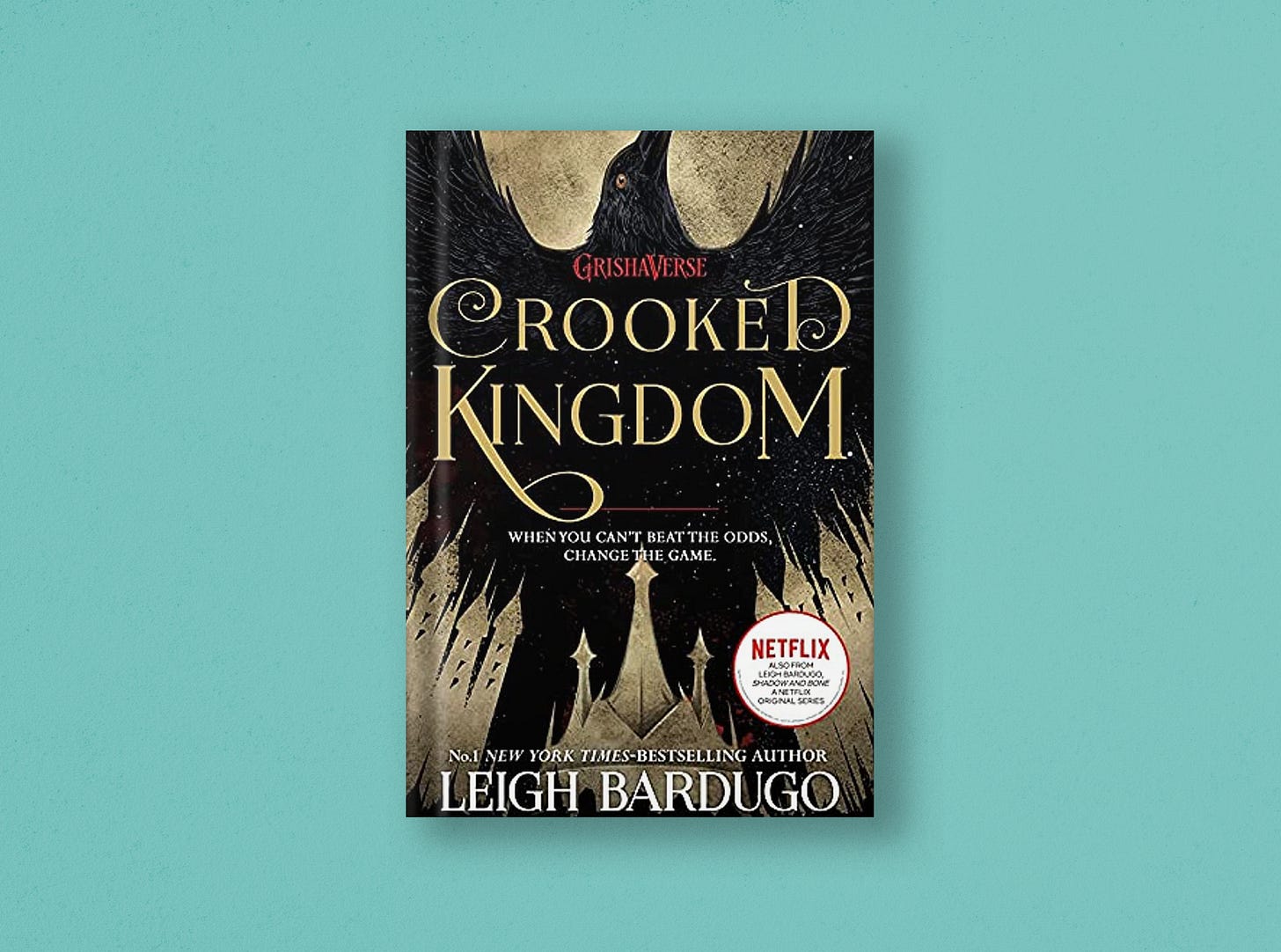Crooked Kingdom
Written by Leigh Bardugo.
⛰️ What is it about?
"Crooked Kingdom" by Leigh Bardugo transports us back to the gritty streets of Ketterdam, a place teeming with illicit trade and shady politics. The book commences immediately after the finale of "Six of Crows," with the gang’s return to Ketterdam, and the subsequent kidnapping of Inej by a jealous merchant, Van Eck. Kaz Brekker, the seasoned conman and star of the first novel, concocts a high-risk, high-reward strategy to rescue Inej while uncovering Van Eck's deadly secrets. The primary obstacles are the city’s unyielding power structures and the looming geopolitical threat of total war.
The stakes are cataclysmic; if Kaz and his crew fail, they risk losing everything they've built and striven for. Encountering numerous obstacles and adversaries at every turn, they must rely on their diverse skillset and camaraderie to navigate the perilous path ahead.
Through cunning, grit, and sheer determination, Kaz and his makeshift crew of spies and sharpshooters embark on a heist that tests their skills and resilience to the utmost.
Their journey culminates in experiences and trials that leave them fundamentally transformed. However, their transformation is not merely a byproduct of their collective quest, but a testament to their perseverance, courage, and growth in the face of adversity.
💭 My Thoughts
As I delve into my thoughts on the novel, it's essential to acknowledge that I didn't particularly appreciate "Crooked Kingdom", mirroring my views on its predecessor, "Six of Crows". Having thoroughly enjoyed Bardugo's Grisha series, I had high expectations for this duology, which were, unfortunately, met with disappointment.
Despite my initial reservations from the first book, I gave "Crooked Kingdom" a fair chance, hoping that Bardugo's storytelling prowess would shine. However, it turned out to be a laborious journey, where finishing the book felt more like a task than an enjoyable experience.
A significant departure from the vibrancy of the Grisha novels, "Crooked Kingdom", much like its predecessor, dwells in darkness. The book’s cornerstone—the plot—falls short compared to the first installment. A narrative featuring six main characters requires a robust, compelling storyline to hold it together, but this book disappointingly fails to deliver.
On reflection, there were no elements in the story that genuinely captivated me or ignited my enthusiasm. In the end, I found myself reading primarily for closure rather than genuine enjoyment.
Ultimately, trying to articulate my feelings about this book in an interesting or engaging manner proved challenging—a telling sign of how compelling I found the story. Bardugo, with two consecutive misses, has slightly diminished my perception of her writing. Unlike in baseball, it might be a while before she has another chance to hit a home run in my bookish ballpark.

